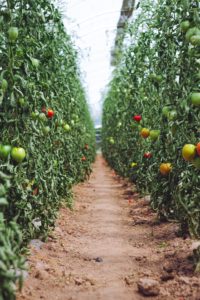Your cart is currently empty!

A 21st Century Renaissance
the March 2020 issue of Pari Perspectives.
I am writing this the day after Brexit became official; the day after the chickens finally came home to roost after the referendum of 2016 in which the people of Britain, or parts of it, voted to leave the European Union. As President Macron of France has pointed out, the referendum was characterized by misunderstanding, misinformation, and downright lies and the result was statistically insignificant but we are, apparently, honour-bound to abide by it.
Those in favour of Brexit, it seems, want either to return to the primary school version of Britain’s glorious past from the 16th to the earliest 20th century when we ‘ruled the waves’ and showed Johnny Foreigner a thing or two; and/or they envisage, in modern, neoliberal style, a future of ultra-competitive, unfettered, high-tech commerce, in which the rich people of Britain will grow ever richer—with the wisely unspoken implication that one day the rest of us will be rich too. All the work will be done by robots, and human beings will while away their days by filling in spreadsheets and selling things to each other, in an ever-rising orgy of prosperity.
All of which is the precise opposite of what the world really needs. Brexit, plus the antics of Donald Trump, Vladimir Putin and others in positions of great power are putting back the hope of real progress by decades—although of course, as everyone who lives in the real world is fully aware, the world as a whole is in deep trouble on every front and we don’t have decades to play with.
For what we do need right now is a total re-think: a metamorphosis; re-birth; indeed nothing less than a Renaissance, even more deep-rooted and far-reaching than the so-called ‘Italian’ Renaissance of the 15th century et seq, which brought the European Middle Ages to a close (up to a point, and for better or worse). Everything needs to be re-thought from first principles—although, mercifully, not everything needs to be re-structured. We not need to begin again with a clean slate. We certainly need to be radical—to get down to the roots—but not gratuitously so. There is much that is good to build on.

The Italian Renaissance of centuries past was led by bankers, intellectuals, and artists. We need intellectuals and artists of course, and we also need bankers—provided the bankers are on our side and are not trying simply to increase their own and their shareholders’ wealth. But it is clear from the current mess—social, ecological, political, economic, moral, religious—that we cannot expect the present powers-that-be to make the changes that are now needed. For the powers-that-be are a coalition of big governments, in turn dominated by leaders who are hell-bent above all on power; plus transnational corporates and financiers who seek primarily to magnify material wealth; all abetted by compliant intellectuals who rely on their leaders for their livelihoods. This elite seems well satisfied with the status quo, or at least prefers to think that whatever is going wrong is not their fault, and they don’t want to change.
Truly, then, if we want the next Renaissance to happen, then we, people-at-large, Ordinary Joes and Jos, need to make it happen. I start with the premise that human beings are a good thing, highly ingenious and creative and far more disposed to do good than harm—so an Ordinary Jo(e) is a good thing to be. Indeed our main task is to create conditions in which what Abraham Lincoln called ‘the better angels of our nature’ can safely raise their heads above the parapet. So how can we make the Renaissance happen? The required strategy is summarized in the diagram:

As you can see, the diagram shows 12 ‘balloons’ arranged in four tiers—all connected with all the others.
Each balloon represents an area of thought. Between them they cover everything that we need to consider and act upon. Geographers may complain that geography is missing and historians might ask, ‘What’s happened to history’—but these and others (like sociology) are, I suggest, meta-subjects, that feed into and partake of all the rest. Religion for convenience I am including under ‘metaphysics’ since its core ideas are mostly metaphysical in nature. All the subjects need to be re-thought de novo; and—which is the point of the connecting lines—each individual subject needs to be re-thought in the light of all the others. To re-think everything in the context of everything else is truly to think holistically. It isn’t good enough simply to re-think everything and then (as now!) keep all the individual subjects in silos. In particular, I suggest, economics needs to be re-thought not as a glorified exercise in accountancy or indeed in money-changing as the modern neoliberals do but as an expression of moral intent—which indeed is how traditional economists (Adam Smith, J.S. Mill, J.M. Keynes and the rest) regarded it. Science should never be taught without the philosophy of science to discuss its limitations as well as its obvious achievements and to place the whole scientific agenda in its proper, metaphysical context.
In more detail:
The top tier, marked GOAL, defines what (I suggest) we should be trying to achieve. Tellingly, although political parties as they vie for government produce sometimes vast and complex manifestoes, they very rarely spell out, succinctly, what kind of world they are really envisaging, or why. Instead they offer slogans, written by PR people: ‘Make America great again’; or, for Brexit, ‘Take back control!’ None of this actually means anything—except perhaps that America or Britain or Russia or whoever should claim or re-claim the right to bully everybody else.
Instead, I suggest, in absolute contrast to the message from on high, we should be seeking to achieve Convivial Societies within a Flourishing Biosphere. Conviviality means, literally, living together, amicably. This requires cooperation underpinned by compassion—which, as all the world’s great religions agree, is the greatest of all moral principles. But the human race cannot survive and in any case is morally and spiritually flawed to its core if we wreck the natural world as, right now, we seem to be doing with all possible speed. Note incidentally, the word ‘biosphere’ meaning ‘living world’—not ‘environment,’ which simply means ‘surroundings.’ ‘Environment’ in practice means ‘scenery’ or indeed ‘real estate’: an entirely anthropocentric and materialist concept. We need, as generally espoused by Buddhists and Hindus, to see ourselves as part of nature: beholden to it as we are to family. Simply to see the biosphere as a resource, or as ‘natural capital,’ as is now considered ‘realistic,’ is to sign its death warrant. If we are truly to do good, though, we also need know-how; to understand, as far as we are able, how the natural world works. Thus in particular, we—the world—also need the science of ecology.

The next tier down, marked ACTION, asks what we need to do to achieve such a world. Of course we need Appropriate Technology where technology is defined broadly—every device from needle and thread to the internet—and ‘appropriate’ means that it must work for us and for the biosphere. A succession of great thinkers over the past two-and-a-half centuries have asked how we can deploy technologies for our own and the world’s benefit without being enslaved by it, including Jean-Jacques Rousseau, John Ruskin, William Morris, Peter Kropotkin, Leo Tolstoy, Mahatma Gandhi, Ivan Illich and E F (‘Fritz’) Schumacher. As robots threaten to make us all redundant and strategy is decided by computer the discussion is now more urgent than ever. All technologies are pertinent but the two that need most attention, I suggest, are those of farming and cooking. Specifically, we need Enlightened Agriculture and an appropriate Food Culture. These are the things we absolutely have to get right, and in practice are getting most wrong. Indeed, present-day agriculture, driven by the perceived neoliberal imperative to maximize and concentrate wealth, is the very opposite of what we really need. Thus, so long as oil is affordable, the agriculture that makes most money most quickly requires monocultures on the largest possible scale with minimum to zero labour—run by big machines and robots with plenty of industrial chemistry, all abetted by biotech. In absolute contrast Enlightened Agriculture (aka Real Farming) is informally but adequately defined as
Farming that is expressly designed to produce good food for everyone without cruelty or injustice and without wrecking the biosphere and traditional cultures and this demonstrably, is best achieved with maximally diverse (mixed), low-input (organic) farms with plenty of skilled farmers and growers, on farms and holdings that in general are small to medium-sized. Traditional, peasant cooking is geared to what such farms produce and the best peasant cooking, as Raymond Blanc and other leading chefs emphasize, is the basis of all the world’s greatest cuisines. Most great traditional cuisines are not vegan but they do use meat sparingly. Traditional Italian cooks use meat for garnish and the bones for stock.
But we will not and cannot act in the ways that we need to without appropriate INFRASTRUCTURE. We need enlightened Government to install an appropriate Economy and frame appropriate Law. Many great thinkers including Tolstoy have questioned whether we need government at all—but we probably do need some kind of body for organizational purposes. It’s essential, though, that government should be on our side. As Jesus said (St Mark (10:42-44)):
…whoever would be great among you must be your servant, and whoever would be first among you must be slave of all.
How many governments live up to this—or have ever done so? Most governments in practice operate as elites, on behalf of elites. Democracy is clearly vital but—as the Brexit referendum so clearly illustrates—it is very difficult to get right. Above all, it requires people at large to take a real interest, which few are inclined or have time to do; and uncorrupted sources of information.
The economy we need, as most of the greatest economists have emphasized, must be rooted in moral and spiritual values. The economies that work best—most efficient, and most beneficial—are cooperative: people working together for the common good; bearing in mind that ‘good’ is only in part material. The economy that now prevails—the offshoot of capitalism known as neoliberalism—is again the precise opposite of what is really needed: an all-out, ultra-competitive, not to say cutthroat drive to maximize material wealth and power via the allegedly ‘free’ but in practice corporate-dominated global market. As successive British governments have told us, of all political hues, we must above all compete to increase ‘GDP’ and to achieve the greatest ‘market share.’ This approach is morally vile and in a finite world is obviously doomed in all but the shortest term but is nonetheless held, by those in power, to be ‘realistic.’ Truly we cannot persist with the status quo or entrust the world’s affairs to those who now command the heights.

Finally the law too must be on our side and on the side of the biosphere. The best we can say at present is that sometimes it is, and sometimes it decidedly is not. Often the law seems to have been framed by powerful groups (including the corporates) for the express benefits of those groups. The laws that need sorting out most radically and urgently are those that refer to land ownership and use. Private landowners sometimes do look after the land and the people who live on it as well as can reasonably be envisaged but often they treat it as a personal playground and/or as a commodity to be bought and sold to the highest bidder and as long as that is so, we can never hope to create convivial societies or to keep the biosphere in good heart.
The bottom tier is labelled MINDSET. This is the sum total of all the ideas and attitudes that in large part lie in our subconscious and are taken for granted, but which shape the way we look at the world—including our fellow human beings and our fellow species. We need to drag these hidden drivers out of the basement and see what they are really made of.
The first component is that of Morality. To cut a very long story short, we should (as Aristotle said) base our moral thinking on the concept of virtue: ask what modes of thought and behaviour can properly be considered ‘good.’ Here there is a great serendipity for although it is fashionable to argue that morality is merely ‘relative’—since the principles differ from society to society and from religion to religion—it turns out that empirically, this is not the case. All the world’s great religions agree, although they may express the matter differently, on the supreme importance of compassion (which Christians are more inclined to call love). Humility too must be seen as a prime virtue: in our attitude to other people, to other creatures, and indeed to knowledge. We absolutely should not assume that we already know everything worth knowing or that such omniscience can ever be within our grasp. Finally—as emphasized in particular by the Eastern religions—we must treat the biosphere and its creatures with reverence. Ecosystems qua real estate just will not do.
Secondly: Science. Suffice to say here that although science is wonderful—a triumph of humankind—and its insights are vital if we and our fellow species are to survive en masse in the decades and centuries to come, it has been horribly misconstrued and misused and in its current forms, as with technology, it is also among our greatest threats. The insights of science are more robust than most but as Sir Peter Medawar pointed out in the mid-20th century it is not and can never be more than ‘the art of the soluble.’ Scientists address only those questions that it occurs to them to ask and in practice address only those problems that they think they have a chance of solving, up to a point, with the resources available. However wondrous the results of their inquiries they must always leave us far short of omniscience. Science above all ought to teach us humility but instead, the way it is taught, it often encourages supreme arrogance. Metaphysics, the third balloon in the bottom tier, addresses what have often been called ‘the ultimate questions’; which I take to be:
1: What is the universe really like?
2: What is the source of morality—what is ‘good’?
3: How do we know what is true?
4: How come?
Question 1 raises the idea of what I would call transcendence: the ancient and perfectly plausible idea that behind the material appearance of things there is an intelligence and indeed a purpose. The sense of transcendence, I suggest, is the essential component of what is properly meant by ‘spirituality’; and above all to a sense of the sacred which ought to underpin our treatment of our fellow creatures and of the land.
Under Question 2 I particularly like the Buddhist version of dharma: the idea that the universe is basically harmonious, and good, and that our task in life is to promote the natural harmony. Contrary to the Dawkins-style ‘selfish gene’ scenario, modern ecology and Darwinian evolutionary theory support the concept of dharma at least as well as they suggest, as Tennyson put the matter, ‘nature red in tooth and claw.’
The basic answer to 3 is that we don’t. In practice we must rely on our intuition at least as much as our much-vaunted rationality—and in the end must acknowledge that the universe is not just a series of problems to be systematically solved but is a mystery. We just have to do our best.
Question 4—‘How come?’—includes: ‘Why should the universe be like it is?’ And ‘Why should it exist at all?’ Of course this is unanswerable. But the questions that are unanswerable are perhaps the ones most worth asking.
By asking ‘the ultimate questions’ metaphysics should underpin all our contemplation. The outer reaches of science lead us rapidly and deeply into metaphysics (as Pari’s founder, David Peat, was wont to emphasize). Yet metaphysics has largely gone missing as in independent discipline—and this, as Professor Sayed Hossein Nasr of George Washington University suggests, may be the greatest single cause of the world’s present ills. We just don’t think in an orderly fashion about the world’s biggest questions; what we are here for; what we should be doing while we are here. Metaphysics is of course at the heart of the world’s religions but then it is entangled with theology, biography, hagiography, treasured myth, and history, which complicates matters no end.

Finally—last balloon—the Arts. Suffice to say here that the arts are the manifestation of human thought and emotion, unrestrained (in theory) by anything other than a desire to express and communicate. Very obviously the arts influence our attitude to life and in the end attitude is all—or at least is the sine qua non. We need to increase knowledge on all fronts of course but we also need to cultivate attitudes of a helpful kind—which in particular means those that foster compassion and a sense of the sacred.
So what’s to be done? For my part I am co-founder of the College for Real Farming and Food Culture, which aims to explore all the questions raised here in as great a depth as can be managed in whatever time is available. Holistic thinking is the key: everything re-thought in the light of everything else. But it’s essential too that high-flown contemplation should be firmly rooted in practical reality: and so the whole curriculum of the College is built around food and farming, which indeed should be the practical focus of all human activity. To treat farming in the way that governments like Britain’s do—as an economic also-ran to be hived off to big business—is the height of folly, in a world in which folly is the norm. The College website needs re-structuring but it conveys the gist nonetheless (http://collegeforrealfarming.org/). The College operates cooperatively, with like-minded organizations—which I hope will include Pari.
Watch this space.


